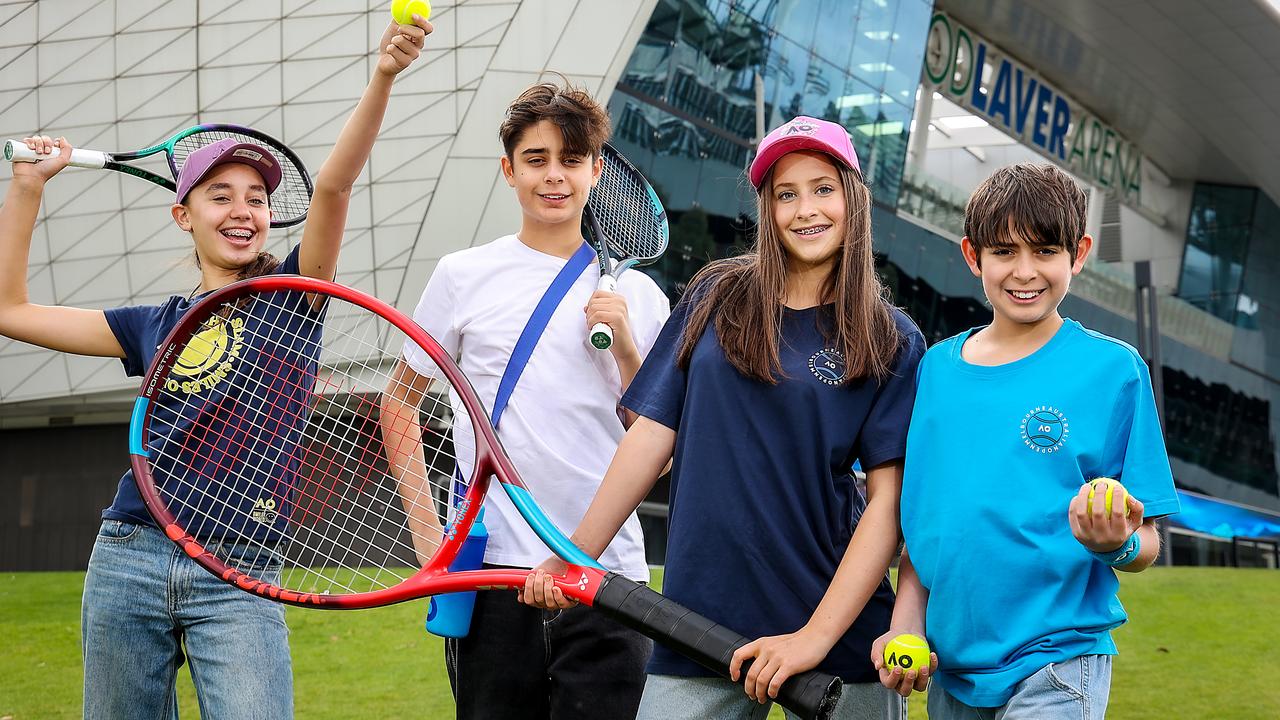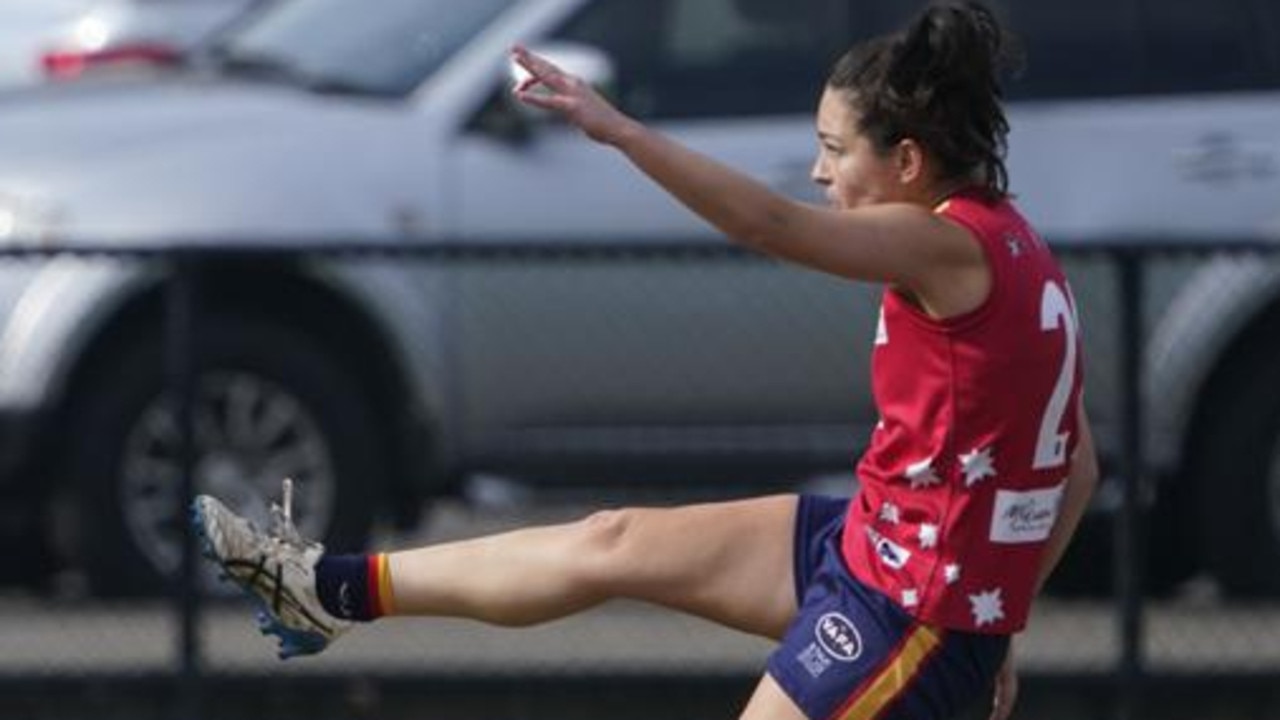Much Taboo About Menstruation: A period piece getting in the way of women’s sport
From professional sporting teams switching to period-friendly uniforms and sharing stories of success on their periods to taboo-free locker room chit chat, menstruation is making headlines. But the Bloody Big Survey says there’s more to be done. Full story:
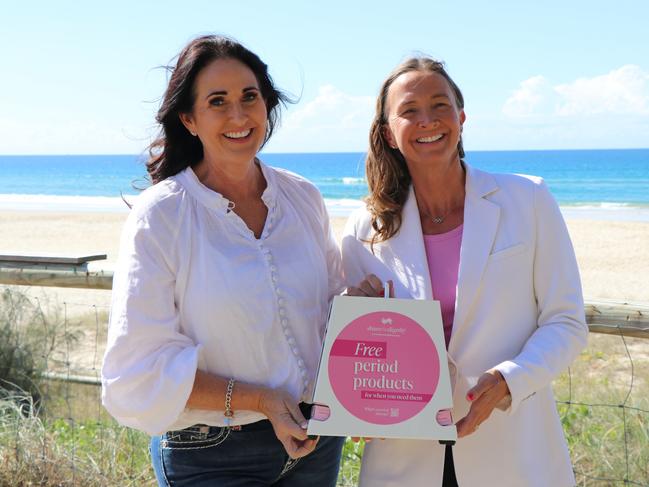
Sport
Don't miss out on the headlines from Sport. Followed categories will be added to My News.
Menstruation is making headlines.
From professional sporting teams switching to period-friendly uniforms and sharing stories of success on their periods to taboo-free locker room chit chat, women are being heard.
But more must be done on the education front.
In an effort to close the ‘what’s that’ gap, not-for-profit organisation Share The Dignity conducts the Bloody Big Survey every three years, aiming to shine a light on the physical, social and financial impacts of menstruation in Australia.
Founder of Share The Dignity (2015) and renowned menstrual health advocate Rochelle Courtenay said she was inspired after the hearing tales of hardships from women battling period poverty – from stealing socks at the laundromat, to making a single product last 24 hours at a time.
“The stories I could go on with are endless,” Courtenay said.
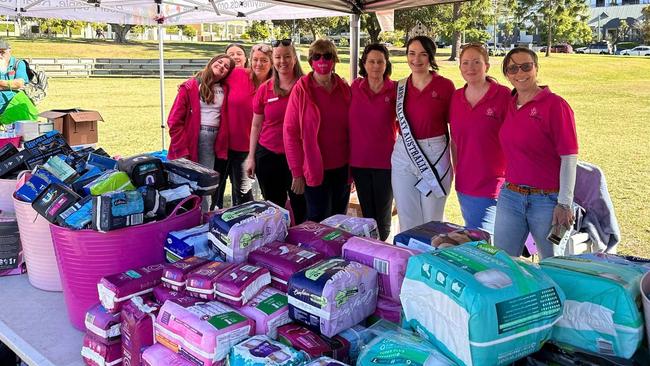
“I started (the organisation) when I read an article that talked about the fact women were experiencing homelessness and also not able to afford period products.
“There’s been plenty of time where I’ve collected five cent pieces to buy a loaf of bread … but I’ve never not had access to period products.”
This year the Bloody Big Survey reached 153,619 subjects, making it the world’s largest body of data on experiences, attitudes and insights on menstruation.
“(It’s) ridiculous considering we’re just a little charity in Brisbane who feels like this is not getting the attention it deserves around the world,” Courtenay said.
Written by Swinburne University of Technology, the report uncovers startling figures surrounding the effects of menstruation on girl’s and women’s participation in sport.
At the forefront it found 68% of respondents had skipped sport due to their period.
104,461 female athletes.
Why? 76.5% due to a fear of leaking, 64.5% because of period pain, and 24.7% citing mood swings and emotions.
Imagine a promising young swimmer missing out on competing because she is afraid of leaking, or simply can’t afford pads or tampons.
Australian swimming legend and Olympic gold medallist Brooke Hanson has seen those very barriers first-hand.
“Sports like swimming, water polo, triathlons, rowing and Surf Life Saving … sometimes girls are even too embarrassed to turn up to training when they’re on their period,” Hanson said.
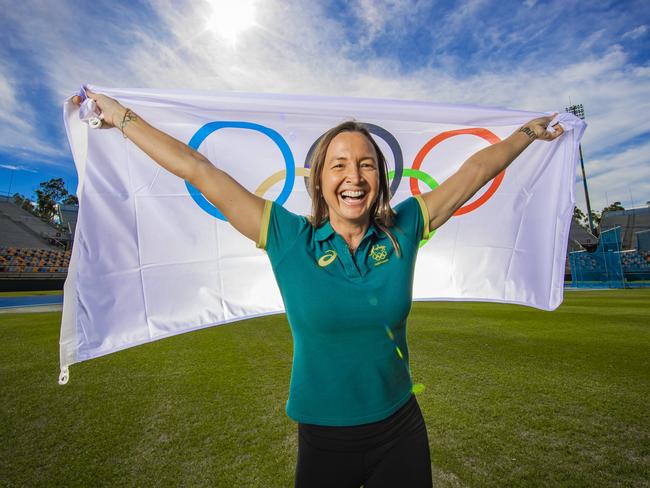
“The last thing they want to do is wear a swimsuit.
“I guess I went through with wearing swimming costumes or Speedos throughout my whole career.
“It’s about me speaking up, providing some of the stories … swimming in the Olympic final, in the 100 meters breaststroke at the Olympic Games on day two of my period.”
In partnership with nutritionist and sport scientist Kate Richardson, Hanson works to dispel the negative myths surrounding women’s health with her own Super Power Period workshops.
“I just want those young athletes to continue playing sport and to continue exercising when they are on their period … understand that our super power period program will empower them and give them the support that they need to champion the conversation when it comes to menstruation.
“For Kate and myself, it’s always just been about really empowering girls to understand their cycle and remain active and support other females going through it as well.
“Just to start talking about it, because we’ve just found that it’s 2024 and still we aren’t talking about it enough.
“We’re able to use information from the Bloody Big Survey to continue to support young athletes.”
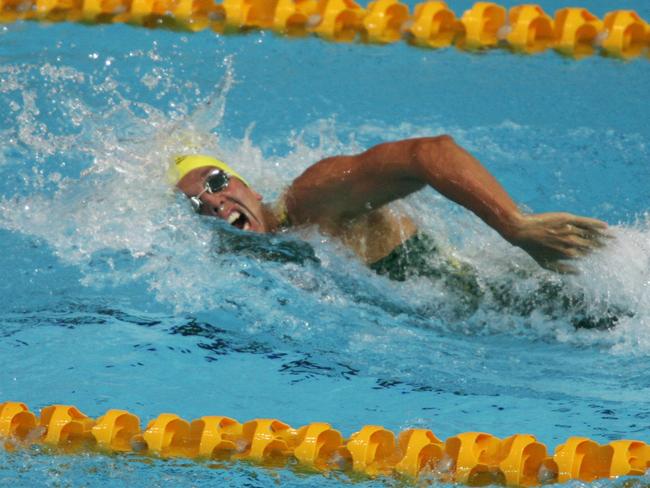
At each workshop, participants are asked to bring a pack of period products which can be donated to Share The Dignity.
“It’s our way of sharing, giving back, teaching the young girls we’re talking to make a difference and that it’s important to always look out for others that can’t afford period products … and share the dignity,” she said.
Outside of the Bloody Big Survey, Share The Dignity is approaching a major milestone: 5 million products collected from 20 drives, and Courtenay said their efforts over the past nine years have contributed to more than just menstrual equity in sport.
“No girl should ever miss out on a day of education because her family can’t afford products,” she said.
“Our vending machines have been rolled out in primary and secondary schools.”
At the tap of a button, the machines dispense a period pack which includes two pads and six tampons – enough for one day at a time.
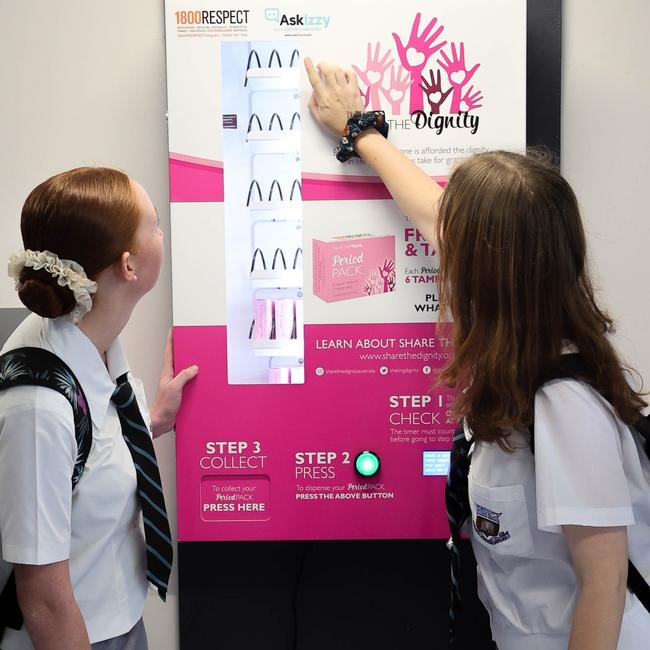
“We have hundreds of stories coming in letting us know we’re on the right path.
“I’m really grateful for that, but then I’m really sad that these survey results are showing us the enormity of the problem,” Courtenay said.
Numbers show that over half of the Australian women surveyed wish they’d known more about menstruation before experiencing their first period.
Who is missing out?
60% are missing school.
over 55% are missing work.
68% are missing sport.
over 40% missing social events.
“Imagine if we put that to men, they don’t even get educated,” she said.
“And that little boy who doesn’t get educated becomes someone’s boss, husband father.
“How do we expect them to understand what we’re going through every single month if they don’t know what happens?”
Courtenay herself was diagnosed with endometriosis, a condition where cells similar to the lining of the uterus grow outside the uterus.
One in seven Australian women suffer from the condition, yet the cause remains a mystery.
“I thought the pain I had was normal because no one ever talked about it,” Courtenay said.
“I’ve since had maybe 10 surgeries and two hysterectomies at the age of 50.”
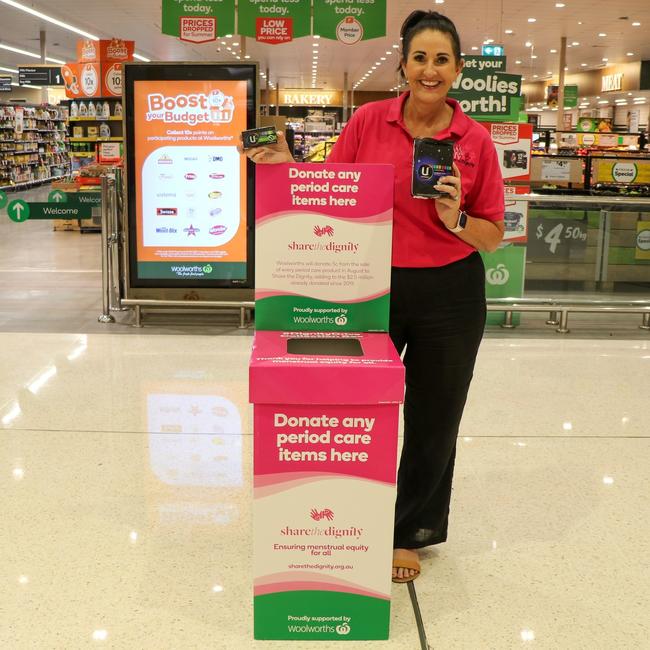
Those living with endo or similar diagnoses are likely to spend up to $30 per typical menstrual cycle (28 days), a steep comparison to the $10 per cycle for women without complications.
Armed with this data from the Bloody Big Survey, Courtenay hopes to reach the ears of Council.
“I want to go back to (them) and say ‘here is all the information we’ve captured’ … what are you going to do in the next three years to make sure there is menstrual equity in your area?
“Things like making sure there is access to period products … make sure there are sanitary bins at sporting organisations.
“If you’re asking girls to play sport you don’t have products or bins in that area then that’s not okay.
“It’s just equity.”
More Coverage
Originally published as Much Taboo About Menstruation: A period piece getting in the way of women’s sport



